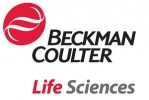Agencourt Bioscience Corporation, a Beckman Coulter company, has announced that a study comparing next-generation sequencing platforms will be published in the October issue of 'Genome Research'.
The study was part-sponsored by Agencourt Genomics Services The paper, 'Rapid whole-genome mutational profiling using next-generation sequencing technologies', focuses on a mutant strain of the yeast Pichia stipitis.
This has potential applications in the development of biofuels, based on an increased efficiency in fermenting xylose to ethanol by the strain.
The genome was sequenced on three different platforms: 454 Life Sciences (Roche), Illumina and Applied Biosystems' Solid system and the data was then compared with the previously sequenced parent strain.
The results demonstrate that all three high-throughput, parallel sequencing technologies are capable of accurately characterising the genome of a mutant strain relative to a previously sequenced reference genome.
Agencourt's objectives in sponsoring this study were to demonstrate the capabilities of next-generation sequencing platforms and to provide a benchmark for comparing these new technologies.
Sequencing on the Solid and 454 platforms was performed by Agencourt Genomic Services in collaboration with Applied Biosystems, while the US Department of Energy Joint Genome Institute conducted the sequencing on the Illumina platform.
Other collaborators on the study included Thomas Jeffries of the Institute for Microbial and Biochemical Technology, US Forest Products Laboratory and members of Gabor Marth's group at Boston College.





